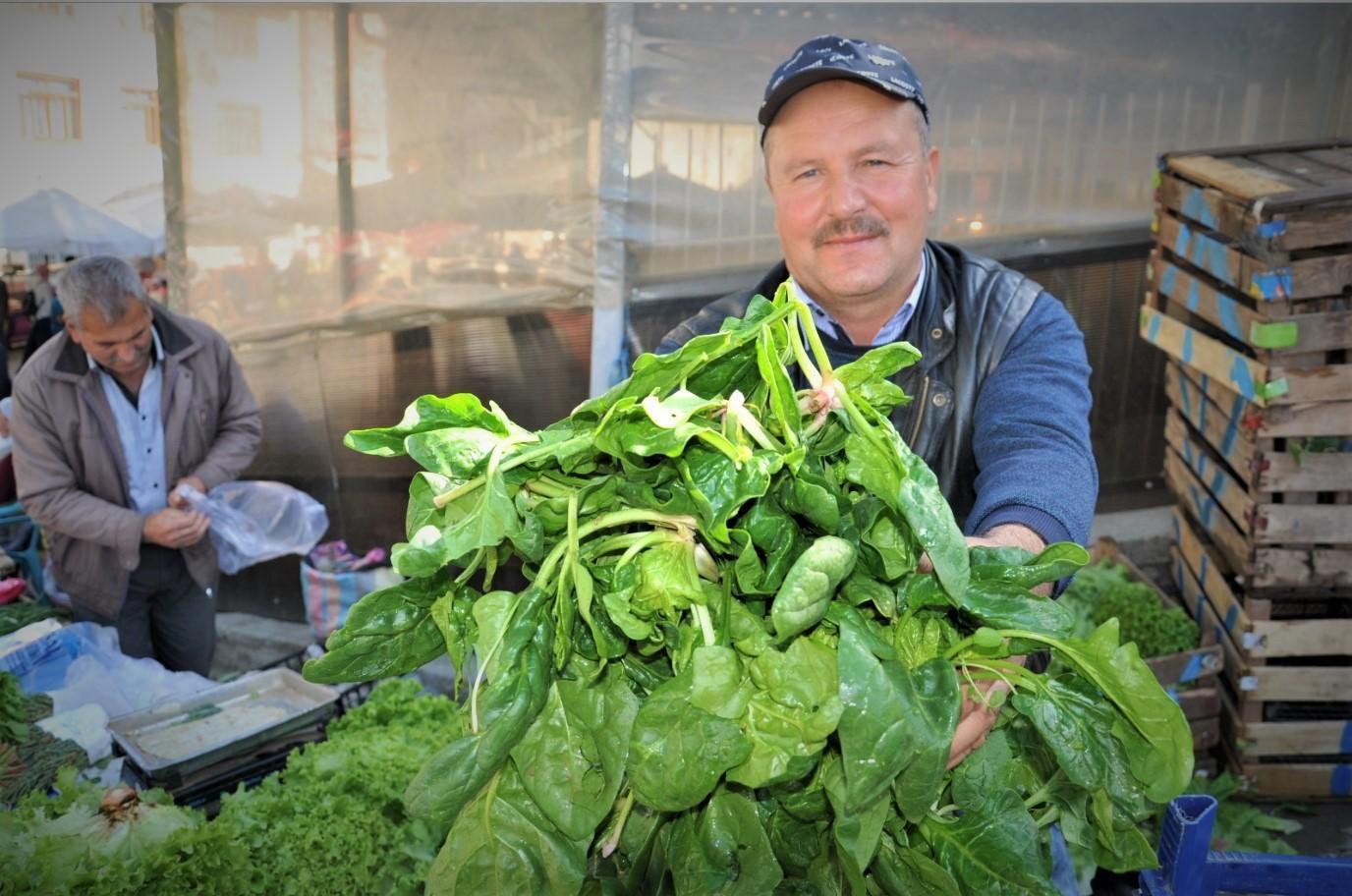
A farmer selling organic spinach at the public market in Simav district of Kütahya.
The importance of training for farmers has come to the fore after several people were recently hospitalized in Turkey due to food poisoning suspected to have originated from spinach mixed with toxic weed.
“This is a toxic weed; it got mixed with spinach. We also did not know that this weed had such a toxic nature. We will give trainings to the workers and farmers about the weeds and spinach. Everyone will be much more careful after this. This process has given a lot of damage to farmers,” the president of the agriculture engineers chamber of Ankara’s Beypazarı district told daily Hürriyet. Most of the toxic spinach-weed combinations are said to have originated from Beypazarı farms.
The chamber president, Mustafa Ateş said that the lab analysis did not show any signs of pesticide intoxication, which some experts said might have been the reason of the poisoning incidents.
“The analyses showed that there is no pesticide or other substance [that might have caused the poisoning]. If this was known by the owner of the farm, they would not have collected the spinach anyway,” Ateş said.
The toxic wild weed has been identified as datura stramonium, which is also known as thorny apple or jimson weed (“şeytan elması” is the Turkish name for the plant). It is alkaloid containing plant that is entirely toxic. The active toxic constituents of the plant are atropine, scopolamine and hyoscyamine.
Beypazarı Mayor Tuncer Kaplan said that workers mixed up spinach and thorny apple as the two look very similar and this toxic weed grew up on a very small area of spinach farms. “The mixing of the [toxic] weed is completely a work accident. The incident is not about agricultural pesticide,” Kaplan told daily Hürriyet.
“From here [Beypazarı], just to Istanbul, we are sending 100 lorries [of spinach] every day. When the product is fruitful, this number goes up to 200 lorries. Some 40,000 tons of spinach are being produced in our district; 15 percent of Turkey’s spinach demand is being met from here,” he said.
Meanwhile, the Istanbul branches of the chambers of food engineers, chemical engineers and agriculture engineers held a press meeting on Nov. 7 regarding the incident. Murat Kapıkıran, an executive member of the Istanbul Agriculture Engineers Chamber, said during the meeting that the Istanbul Provincial Directorate of Agriculture and Forestry’s recent statements linking the poisoning cases to the mixing of spinach and toxic weed were not enough to disseminate the public’s anxieties.
“Within the framework of the public’s right to information, the public needs to be informed in a transparent way through which methods of the relevant ‘advanced analyses’ were conducted, … if the analyses looked at agriculture pesticides, chemical substances, natural food toxins, detergents, heavy metals, radioactive fallouts, microplastics, parasites and microorganisms. It is a must that inspections are taken thoroughly and regularly regarding the food’s journey from it being a seed to it coming onto our plates. And as soon as possible, food control labs, which are one of the most important steps of this inspection, need to be established at production basins and wholesale market halls,” Kapıkıran said.